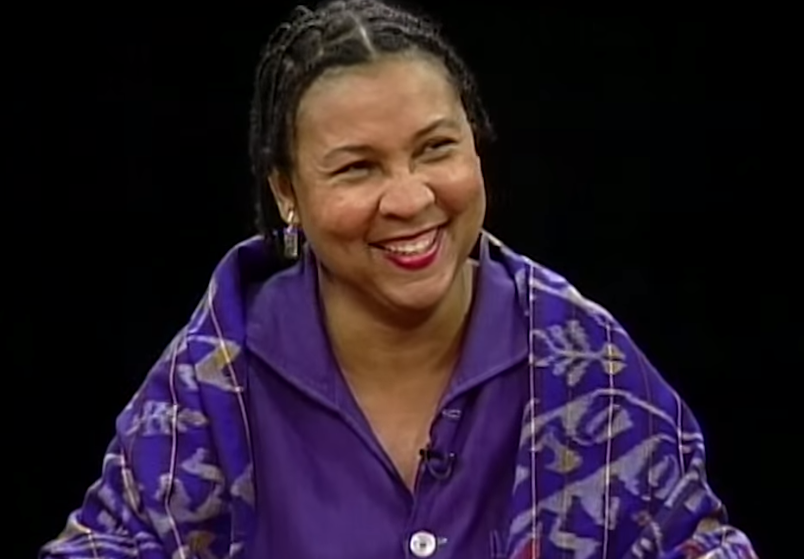“The word ‘love’ is most often defined as a noun, yet we would all love better if we used it as a verb… Imagine how much easier it would be for us to learn how to love if we began with a shared definition.”
– bell hooks, All About Love
As an artist and organizer, I have always been drawn to those authors who see writing itself as a vehicle of change and impact on larger social issues. bell hooks is one of those trailblazing writers whose work on race, feminism, and class have influenced me and countless others to tap into our creativity in order to bring about a more just and equitable world
It seems fitting to draw upon bell hooks as we celebrate Valentine’s Day because of her exploration into what the practice and promise of love looks like. In fact, her writings on a just, community-centered love are especially appropriate for the philanthropy to consider all year around.
Philanthropy is supposed to reflect our love of humanity. So, what would it look like if the sector took bell hooks’ advice and rooted grantmaking in love as a verb, not just a noun.
Why Center Love
In its purest form, philanthropy is etymologically defined as ‘love for humanity.’ So, it follows that the best model for philanthropists is one who acts out of love for humankind. If philanthropy really is all about love, our support, our investments and other funder/donor actions must be seen – and judged – as a reflection of that love.
Love is absent in many places in the sector. When I was introduced to bell hooks’ work, I was a 19-year-old educator learning what it meant to be in a classroom. In her book Teaching to Transgress, she often speaks about how love was a missing ingredient from the classroom, that there was indeed enough love to go around. However, often many education institutions were so caught up in raw data, cold hard facts, they did not realize how a culture of love could impact the community.
Similarly, philanthropy’s relationship with love is, at best, inconsistent. At worst, it is dehumanizing to those in need, hypocritical about how much is possible.
“Abuse and neglect negate love. Care and affirmation, the opposite of abuse and humiliation, are the foundation of love. No one can rightfully claim to be loving when behaving abusively.”
Philanthropy makes many bold statements about their support for diversity and building the power of impacted communities. Yet those who sit at the margins are still often treated as interlopers in the nonprofit and foundation spaces. Even in the best circumstances, they are just one gathering or annual report away from being used as tokens, put on display in order to make foundation trustees look good or grantmaker mission statements actually mean something tangible.
The examples of the sector’s disconnect are all around us. Too many are happy to just say that Black Lives Matter but roll their eyes at the concept of reparations being a reality for their organization. Many say they support queer communities but won’t listen to trans people when they say their very existence and lives are in danger. Those on the left are quick to share graphic visuals of violence on their IG stories of families at the Mexico-US, border, but how many are using their generational wealth, resources, or connections to support the very same frontline migrant justice organizations that are grappling with increasingly hostile environments and limited resources.
Philanthropic love means utilizing grantmaking as a means for freedom rather than an avenue to reinforce existing dominations. It means lifting caps and restrictions on the way that we give and having greater faith and flexibility with the way we give. It means going beyond the initial impact of digital activism or using the right keywords on X.
To fully center the work on love, more philanthropic intuitions will have to take real accountability for their role in past missteps and harm.
For philanthropy to be a true expression of our love for humanity, it will need to acknowledge this uncomfortable history. While the first steps on that journey are noteworthy and important, multiple, vocal steps are needed for that love to deeply take root.
Love means honesty – and accountability
“Love and accountability work in tandem, especially as you are trying to revise the way your institution functions….”
The very first step in really showing love when harm has been done, when there’s a history of gaining wealth by extracting it from existing communities, is to say you’ve done it. Denying or minimizing it or making it hard for others to discover it is just as bad as directly lying about it. And lying about this reality and your connections to it really serves nobody.
Real change sets aside neutrality. It takes a clear and vocal position, for all to hear and read.
“Choosing to be honest is the first step in the process of love. There is no practitioner of love who deceives. Once the choice has been made to be honest, then the next step on love’s path is communication.
Choosing Love
Scholars of her work will say that of the nearly 40 books written, All About Love is the most raw, unfiltered book bell hooks ever wrote. Yet, the impact is undeniable. It reminds us that while we all have different starting points and all carry different baggage, it is never too late to learn and do better.
If we believe that another world is possible and want the dream of that world to sustainably come to pass, we need philanthropy to exemplify their mission as verbs – not just nouns. Communities need consistent actions – not just carefully word smithed intentions. We must be clearer about the way this love looks and operates for all, not just for the connected few or when we are in a state of crisis.
As bell hooks reminds us, “The moment we choose to love, we begin to move against domination, against oppression. The moment we choose to love we begin to move towards freedom, to act in ways that liberate ourselves and others.”
Let’s not waste any more time. Let us make a commitment to center more love in our philanthropy.
Can we really define the work any other way?
Suhasini Yeeda is the Editorial Manager at the National Committee for Responsive Philanthropy.
Screenshot of bell hooks on Charlie Rose Show sourced at https://www.youtube.com/watch?v=1ShWJf8BIqI&t=184s via https://bellhooksbooks.com/
















































































































































































































































































































































































































Leave a Reply